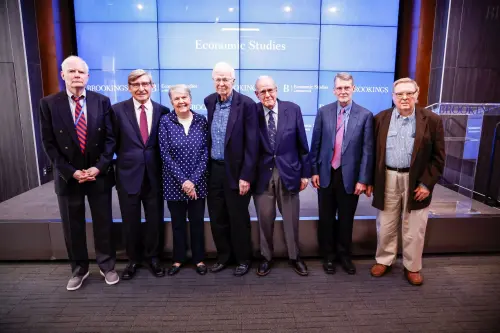In “Safety, liquidity, and the natural rate of interest,” Marco Del Negro, Domenico Giannone, Marc P. Giannoni, and Andrea Tambalotti of the Federal Reserve Bank of New York find that the secular decline in the natural rate of interest (the real rate of return that prevails when the economy is at its potential) in the U.S. is primarily due to the strong demand for safe and liquid assets, and especially U.S. Treasury securities, provoked in part by foreign and domestic crises over the past 20 years.
The authors argue that Treasury bonds are valued not only for their financial returns, but also for their safety and liquidity, and they attribute much of the steady decline in Treasury rates since the late 1990s to an increase in the premium that investors are willing to pay for those characteristics.
They arrive at this conclusion by showing that the returns on securities that are less liquid and less safe than Treasuries, such as corporate bonds, have declined much less. Their finding is related to a version of the popular “savings glut” hypothesis put forth by former Fed Chair Ben Bernanke, one that emphasizes the shortage of safe assets in the world economy as a possible source of “secular stagnation.”
They argue that the decline in interest rates poses important challenges for monetary policy and that liquidity of assets, which can help explain these low rates, is as important as safety.
“We show that the liquidity convenience yield plays an important role in explaining why interest rates on liquid assets are currently low, and argue more broadly that for both secular trends and cyclical movements in interest rate liquidity plays a role that is as important as that of safety.”
This paper is part of the Spring 2017 edition of the Brookings Papers on Economic Activity, the leading conference series and journal in economics for timely, cutting-edge research about real-world policy issues. Research findings are presented in a clear and accessible style to maximize their impact on economic understanding and policymaking. The editors are Brookings Nonresident Senior Fellow and Northwestern University Economics Professor Janice Eberly and James Stock, Brookings Nonresident Senior Fellow and Harvard University economics professor. Read the rest of the articles here.
The authors did not receive financial support from any firm or person for this article or from any firm or person with a financial or political interest in this article. They are currently not an officer, director, or board member of any organization with an interest in this article.






